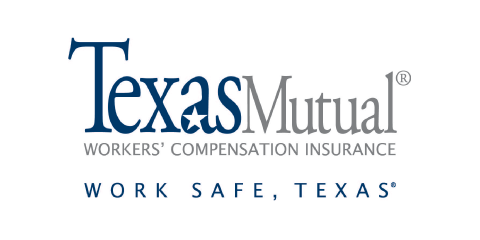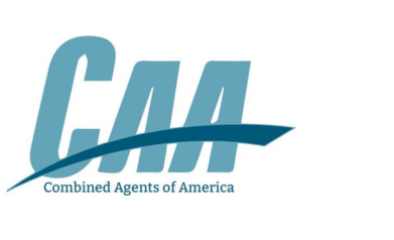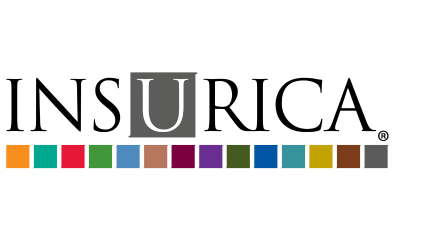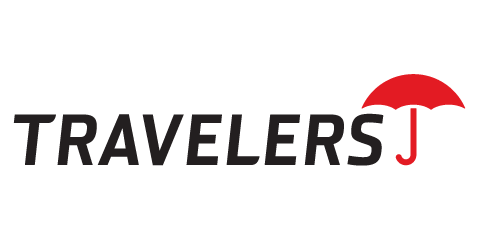INTRODUCTION
Using credit history as a means of rating or scoring potential customers for underwriting acceptability is an underwriting tool that has stood the test of time (and legislative scrutiny) and is here to stay. Along with this underwriting tool comes a set of responsibilities and other considerations for the agents who act as the company's front-line underwriters.
What is meant by insurance scoring?
Credit reports (that is, the history of a prospective customer's use of credit and ability to pay debt), have typically been used for underwriting personal lines. The use of credit reports for underwriting, in some form or another, has been around for almost 20 years. The theory is that a customer with a poor credit history is more likely to present a claim to the insurer and could also be a more likely moral risk. Through the years, companies have refined this evaluation to incorporate other risk attributes that they feel will more accurately predict the likelihood of a loss for a particular individual. In addition to standard credit reports, companies rely on such information as CLUE reports, MVRs, and certain public records (bankruptcies, tax liens, etc.).
Scoring models
A fairly recent trend in the interpretation of credit and other reports is the development of scoring models. A scoring model is a means to determine a score after passing credit report data through a fairly complicated software program known as an algorithm. Underwriting scoring models are not really new, but they have become substantially more sophisticated.
Where do the scores come from?
A major player in the area of scoring technology is Fair, Isaac, a California-based firm that develops predictive models for use in insurance scoring services available through TransUnion, TRW, and Equifax. According to information from Fair, Isaac, the scoring models are developed from the policy records of a variety of insurance companies whose structure and performance reflect the industry as a whole. These records include earned premium and incurred losses for a certain period of time and are then matched to policyholders' credit reports for the same time period. Credit reports, earned premium, and incurred losses for up to four time periods are then combined into one database. Fair, Isaac reportedly uses data from more than a dozen companies and more than 1.4 million policies for its database. This represents more than $1.5 billion in earned premium and nearly $900 million in incurred losses.
The information in the database is then compared with other characteristics, such as public record information (bankruptcies, tax liens), credit account trade line (balance, delinquency, payments due), and additional credit inquiry sections of the credit report.
Once the basic scoring model has been developed, an individual insurance company must test and validate the model on its own book of business. Each company needs to find the right combination of factors to accurately predict future losses. Companies will use the resulting score either by itself or in conjunction with other underwriting tools to price or decline business. One major company, Travelers/Aetna, rates 23 different risk attributes to come up with a composite score.
Are the scores reliable?
There are mixed feelings about the effectiveness of these scoring techniques. Some consumer groups question the reliability of these scores because of the perceived level of inaccuracy on credit reports.
A September 1996 report prepared by the Credit Reports Subgroup of the Market Conduct and Consumer Affairs Subcommittee of the National Association of Insurance Commissioners stated that the Federal Trade Commission is able to estimate the accuracy of credit reports based only on the volume of complaints it receives. The number of complaints has been decreasing, therefore the FTC assumes that the accuracy of credit report information is improving. The FTC does not monitor or require credit reporting agencies to keep records of complaints. Some financial advisers even recommend that consumers get a copy of their own credit reports every three or four years to check for accuracy.
The NAIC report was revised in January 1997 to respond to concerns of the Alliance of American Insurers that the original report inaccurately treated credit reports as a rating criteria. The Alliance also charged that some parts of the NAIC report contained biases and misstatements. The section on "Considerations & Recommendations," some of which suggest legislative action aimed at restricting or prohibiting the use of credit reports, drew the most criticism from the Alliance.
Who obtains the insurance scores?
A number of insurance companies obtain the insurance scores directly from the third-party vendors as part of the companies' initial quoting, underwriting and/or renewal processes. Some companies require their agents to deal directly with third-party vendors, such as Equifax, and to obtain the insurance scores on the company's behalf. In some instances this is accomplished via a customized computer program with the insurance agent providing online data about a proposed applicant to the third-party vendor. The third-party vendor then provides the insurance score online directly to the agent. Insurers require the agents to use the insurance score to screen out ineligible accounts and to help tier the account for premium purposes.
At least one third-party vendor, Equifax, requires agents and brokers who wish to obtain insurance scores to sign a contract prior to utilizing the "Equifax Point of Sale Automated Information Ordering Service." Insurance agents and brokers who are asked to sign such agreements should proceed with caution. A provision in this agreement provides that the agent agrees to hold Equifax harmless in certain instances. The agreement also provides in part that "...Equifax cannot be the insurer of the accuracy of the information," and further provides that the agent will "...release Equifax...from liability for any negligence in connection with the preparation of such reports." The obvious concern is that the agents are being asked or required to perform an underwriting function for the company but are unnecessarily shouldering a disproportionate amount of the potential risk which more properly belongs to the third-party vendor, Fair, Isaac, and the insurance company.
The Federal Fair Credit Reporting Act
A major concern for agents is the additional responsibilities that result when a company chooses to use insurance scoring and/or credit reports as an underwriting tool. The Federal Fair Credit Reporting Act was enacted in 1971 and amended in 1996 to provide, in part, that credit reports may be ordered in five types of situations: insurance underwriting, credit transactions, employment purposes, determining eligibility for a license, and a legitimate business purpose.
Its purpose is to protect consumers against the circulation of inaccurate or obsolete information and to ensure that consumer reporting agencies act responsibly and in a manner that is fair and equitable to consumers. The FCRA provides a means of protection for consumers who have been the subject of any "adverse action" based on a consumer credit report. The two FCRA sections quoted below, as amended in 1996, deal with adverse actions based on consumer reports, civil liability to the consumer for non-compliance, and civil liability to the consumer reporting agency for misuse of consumer reports.
United States Code/Annotated, Title 15, Commerce and Trade Section 1681m, Paragraph a: If any person takes any adverse action with respect to any consumer that is based in whole or in part on any information contained in a consumer report, the person shall (1) provide oral, written, or electronic notice of the adverse action to the consumer; (2) provide to the consumer orally, in writing, or electronically (A) the name, address, and telephone number of the consumer reporting agency (including a toll-free telephone number established by the agency if the agency compiles and maintains files on consumers on a nationwide basis) that furnished the report to the person; and (B) a statement that the consumer reporting agency did not make the decision to take the adverse action and is unable to provide the consumer the specific reasons why the adverse action was taken; and (3) provide to the consumer an oral, written, or electronic notice of the consumer's right — (A) to obtain, under section 1681j of this title, a free copy of a consumer report on the consumer from the consumer reporting agency referred to in paragraph (2), which notice shall include an indication of the 60-day period under that section for obtaining such a copy; and (B) to dispute, under section 1681I of this title, with a consumer reporting agency the accuracy or completeness of any information in a consumer report furnished by the agency.
United States Code/Annotated, Title 15, Commerce and Trade Section 1681n: (a) Any person who willfully fails to comply with any requirement imposed under this subchapter with respect to any consumer is liable to that consumer in an amount equal to the sum of: (1) (A) any actual damages sustained by the consumer as a result of the failure or damages of not less than $100 and not more than $1,000; or (B) in the case of liability of a natural person for obtaining a consumer report under false pretenses or knowingly without a permissible purpose, actual damages sustained by the consumer as a result of the failure or $1,000, whichever is greater; and (2) such amount of punitive damages as the court may allow; and (3) in case of any successful action to enforce any liability under this section, the cost of the action together with reasonable attorney's fees as determined by the court. (b) Any person who obtains a consumer report from a consumer reporting agency under false pretenses or knowingly without a permissible purpose shall be liable to the consumer reporting agency for actual damages sustained by the consumer reporting agency or $1,000, whichever is greater.
Starting to get the picture?
Since the prospective applicant for insurance deals directly with the agent, it falls on the agent to consistently and fully comply with the notification requirements of the FCRA. Moreover, since under the FCRA any agent who receives or requests a consumer report (which presumably would include an insurance score which is part based upon a consumer report) is a "user," the agent is required by the statute to advise the applicant of "adverse action." While in some cases the insurance company may agree to notify the applicant of the adverse action, if the insurance company fails to do so or does not strictly comply with the requirements of the FCRA, the agent may still be subject to liability under the statute.
Another problem may arise when the agent provides notification of adverse action to the applicant and the applicant is then left with the impression that it is the agent, as opposed to the insurance company, who is refusing to write the coverage or charging a higher premium for the coverage. Having the agent as one who provides notification of any adverse action tends to blur the distinctions between the insurance agent and the insurance company and the respective duties of each. This could result in the agent improperly being brought into a lawsuit by the consumer following any adverse action.
IIABA’s Office of the General Counsel provides a memorandum that discusses the Fair Credit Reporting Act (FCRA) as well as two other federal statutes, the FACT Act and the Drivers Privacy Protection Act (DPPA), and their impact upon the ability of insurance agents and brokers to use driving records, consumer reports and credit scores.
Suggested Basic Loss Control Measures
One of the most important loss control techniques for insurance agencies is total and complete knowledge by key agency personnel, including those involved in the application process and/or the quoting or binding of insurance, of all of the provision of the FCRA. Further, the agency should develop and consistently implement agency procedures in order to ensure compliance with these statutes. While it is important that key agency personnel be familiar with any materials or directives from the insurance companies concerning credit reports, insurance scoring and/or compliance with the applicable statutes, it is crucial that insurance agencies scrutinize these company materials and directives inasmuch as the agency is directly accountable under the involved statutes.
At a minimum, the agency must implement a consistent procedure for providing notification of "adverse action." This means that agency personnel must provide the required notification when a report indicates the consumer is not eligible for placement with the company requiring the report, or is not eligible for placement at the company's best rates. The agency should also develop and consistently implement procedures to prevent any agency personnel from disseminating any consumer report or insurance score information to any other person unless such person has a legitimate business need for the information in connection with the business transaction involving the consumer.
Procedures should also be developed and consistently followed so as to prevent any agency personnel from obtaining a consumer credit report or insurance score unless it is in connection with the underwriting of insurance involving that consumer. Some companies are now requesting their agents to obtain applicant's social security numbers in connection with insurance scoring. Agencies need to consider security issues related to the collection and handling of social security numbers and to devise measures to protect against improper or inadvertent disclosure of social security numbers.
The Texas Legislature responds
For the first time, the Texas Legislature addressed the issue of insurance scoring in the 2003 session. Under the law passed out of that session, insurance scoring is permitted on auto and homeowners business, both new and renewal. Numerous safeguards and disclosure requirements are built into the law, which generally conforms to provisions set forth by the National Conference of Insurance Legislators.
Insurers are required to file their scoring models with TDI. Effective January 1, 2004, scoring models must conform to the following requirements:
- An insurer may not deny, cancel or nonrenew a policy solely on the basis of credit information without consideration of any other applicable underwriting factor independent of credit information.
- An insurer may not take an action that results in an adverse effect against a consumer because the consumer does not have a credit card account without consideration of any other applicable factor independent of credit information.
- An insurer may not consider an absence of credit information or an inability to determine credit information for an applicant for insurance coverage or insured as a factor in underwriting or rating an insurance policy, unless the insurer has statistical, actuarial or reasonable underwriting information to prove the correlation between no credit and anticipated losses.
- An insurer may not use any of the following as a negative factor: (1) a credit inquiry that is not initiated by the consumer; (2) an inquiry relating to insurance coverage; (3) a collection account with a medical industry code; (4) multiple home mortgage or motor vehicle lender inquiries made within 30 days of a prior inquiry.
- An insurer must provide reasonable exceptions for a consumer whose credit information has been directly influenced by a catastrophic illness or injury, by the death of a spouse, child, or parent, by temporary loss of employment, by divorce, or by identity theft.
- An insurer must re-underwrite and re-rate an insured within 30 days of receiving an amended credit report.
- An insurer or its agent must disclose to an applicant in writing or electronically at the time of application that credit may be used, on a form promulgated by TDI, and must include the name of the credit reporting service.
- If an insurer takes adverse action because of a credit report, the insurer must provide to the applicant or insured within 30 days written or electronic notice of the action. The notice must include the name, address, and telephone number of the consumer reporting agency, as well as other information to assist the consumer. The insurer must include a description of not more than four factors that were the primary influences of the action resulting in the adverse effect.
- An insurer must indemnify, defend, and hold its agent harmless from and against all liability, fees, and costs that arise out of or related to the actions, errors, or omissions of an agent who obtains or uses credit information or credit scores for the insurer if the agent follows the instructions of or procedures established by the insurer and complies with any applicable law or rule.
In addition, the law prohibit a consumer reporting agency from providing or selling data or lists that include any information that was submitted in conjunction with an insurance inquiry about a consumer’s credit information or a request for a credit report or credit score.
Conclusion
The use of credit history as an underwriting tool is nothing new. However, the increased degree of sophistication of the reports coupled with insurance scoring and the additional responsibilities being thrust upon agents are cause for concern. While not new, this issue is still developing and will not likely go away. While the companies believe there are legitimate reasons supporting the use of insurance scores, it remains to be seen how consumers, regulators and legislators will ultimately react to the new procedures. In order to protect their own interests and to better respond to the needs and questions of their insureds, independent agents must have full knowledge of the process. Agents should not hesitate to be vocal with insurance companies that are requiring the agency to do front line underwriting in the form of insurance scoring, and to raise any questions or concerns they have directly with those companies.
This report was based in part on material prepared by and used with the permission of Kathleen Weinheimer, CPCU, AAI, Vice President of Industry Relations for the Independent Insurance Agents Association of New York.














